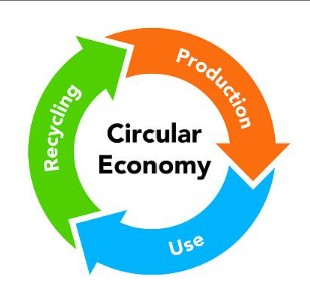UHF RFID Tagging is a key enabler of Circular Economy practices and reporting
Ultra-High Frequency (UHF) RFID tagging plays a pivotal role in advancing the circular economy by enabling precise tracking, efficient reuse, and smarter resource management. Here's why it's so important:
- ♻️ Supports the 3Rs (Reduce, Reuse, Recycle): RFID tags help identify reusable components and materials, reducing waste and promoting recycling.
- 🔍 Enhances Traceability: Tags provide real-time data on product origin, usage, and lifecycle, making it easier to recover and repurpose items.
- 🏭 Improves Supply Chain Transparency: RFID enables visibility across production, distribution, and disposal, helping businesses optimize inventory and reduce overproduction.
- 🧠 Enables Smarter Sorting: In recycling facilities, RFID tags automate the sorting of materials, minimizing contamination and improving recycling rates.
- 🌱 Promotes Sustainable Packaging: RFID-tagged reusable packaging helps companies comply with regulations and reduce single-use waste.
- 🔄 Extends Product Lifespan: By monitoring wear and tear, RFID helps determine when components can be reused or need replacement.
In short, UHF RFID tagging is a key enabler of circular practices, helping industries shift from a linear “take-make-dispose” model to a regenerative system that values longevity, efficiency, and sustainability.
UHF RFID Is a Game-Changer for Compliance Reporting
Ultra-High Frequency (UHF) RFID technology enhances compliance reporting by delivering automated, accurate, and real-time data across industries. Here's how it makes a difference:
- 📡 Real-Time Asset Tracking: UHF RFID tagging assets enable continuous monitoring of assets, ensuring up-to-date records for audits and regulatory checks.
- 🧾 Automated Data Collection: Eliminates manual entry errors and speeds up reporting by capturing data instantly as items move through operations.
- 🔐 Secure & Tamper-Evident Records: When integrated with blockchain, RFID systems offer immutable audit trails—critical for industries like healthcare and pharmaceuticals.
- 🔄 ERP Integration: RFID data flows directly into enterprise systems, aligning physical assets with financial records for seamless compliance.
- 📊 Predictive Analytics & Maintenance: AI-enhanced RFID systems can forecast equipment issues and track lifecycle events, supporting proactive compliance.
- 🧠 Audit Confidence: RFID reduces audit prep time by up to 80% and boosts inventory accuracy to over 99%, giving leadership peace of mind during inspections.
In short, UHF RFID collected data transforms compliance from a reactive chore into a proactive, data-driven process.


